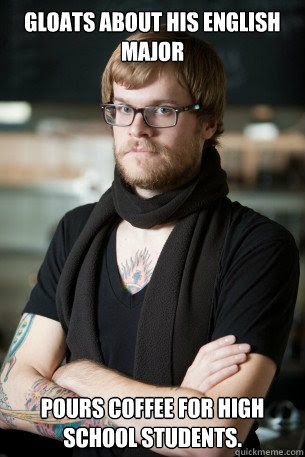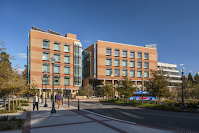Week 1 Blog Post
1) In the article(s) you read, what is the perspective of the writer(s)?
The perspective by C.P. Snow is that there is a divide between the sciences and humanities. There is a divide as Snow highlights the educational implications of one over the other. The two cultures previously almost had an animosity as one thought itself more important for society than the other as if the two couldn't overlap. Victoria Vesna discusses that there is a bridge between creatives and technology at various points in the present day. Artists often drive that force in which they connect science and the humanities together, however many obstacles still come in question.
2) How do you see these two cultures in your immediate world, specifically at the UCLA campus?
The two cultures in my immediate world at UCLA is with the concept of North and South Campus. Among students, North Campus is where the humanities students are, such as students who study political science (although it is technically a social science), English, and the Arts. The question these students often face is "what are you actually going to do with that," by their peers and older adults. The stereotype of the student who people say may be a barista when the graduate because what they are studying doesn't bring in money. The buildings are older with the sense of traditional academia with books and philosophical lectures is the presenting image
While South Campus has various sciences and technologies with people studying stem cells to engineering to dental to nursing.
However, the divide isn't about who's better but rather who brings in more money such as the school of Engineering having one of the most newest and prestigious buildings and the Anderson School of Business Management. Although, from time to time the sciences take themselves more seriously as the "true" academia as it can be challenging, as the sciences don't see what they study as objective.
3) How does this perspective change your thinking?
I believe wholeheartedly thst academia should be about the knowledge of everything around you. Learning about life memorizing math equations and using problem-solving in social or scientific problems are what people should not divide or prioritize over. The function of life is human and anything that creates and facilitates human life should be seen as interwoven. As people are not just fact or just emotions.4) How do these new ideas and perspectives benefit you, and how can you use them as a student or in other areas of your life?
These ideas benefit me as I know that science needs ethics and humanities need facts. It makes me a better student and hopefully one day a researcher.
sources:
https://www.moorerubleyudell.com/projects/engineering-vi-phase-2-university-california-los-angeles
https://english.ucla.edu/modules/home-banner-top/kaplan-hall/
https://cheezburger.com/5720585472/i-have-seen-the-future-and-it-has-mochas





Comments
Post a Comment